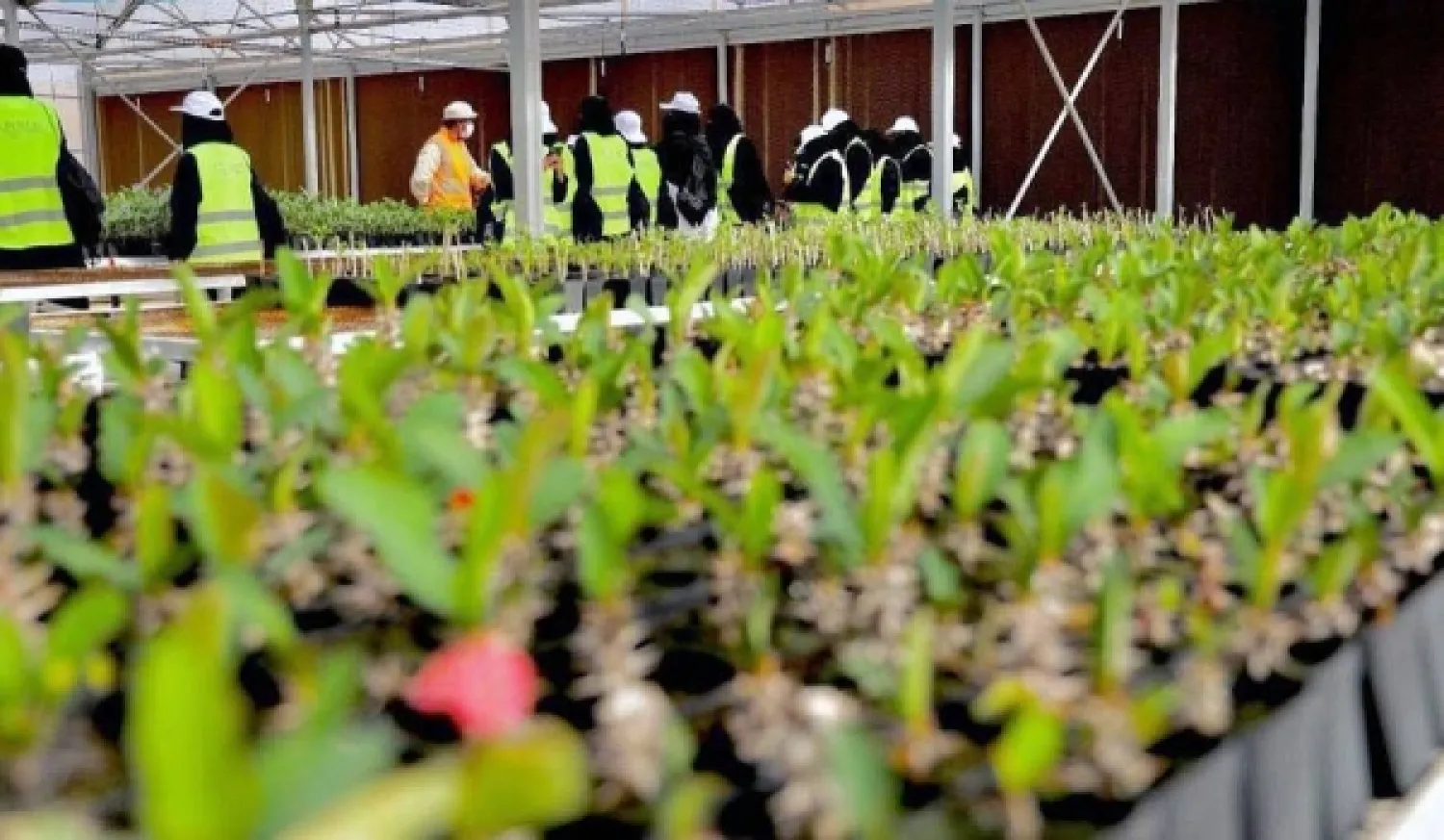The Red Sea Development Company (TRSDC), the operator of the giant Red Sea tourism project in western Saudi Arabia, seeks to plant more than 15 million plants and saplings to enrich the green cover in the project’s environment, through its one-million square meters nursery.
Head of Corporate Environment and Sustainability at TRSDC Raed al-Baseet confirmed that environmental monitoring is the permanent companion for the project from the planning, initial and construction phases until its completion.
The company is seeking to increase the percentage of seaweeds that absorb carbon dioxide and increase the percentage of mangrove trees and coral reefs.
“This is in addition to its endeavors to identify areas with high environmental values, something that the company has already achieved through approving the development of 22 islands out of 90 at the location to make them a tourist destination with a different environmental character.”
Since the beginning of the project, the area was designed to become a destination for renewable tourism with its sensitive ecological system, said Baseet.
“To ensure achieving ecological diversity and balance, which we aspire to realize by 2040, we have conducted comprehensive ecological surveys for all the lands of the project, taking into consideration the long-term environmental impacts of the operational actions of the scheme,” he noted.
The ecological team at the company plays a vital role in most aspects of the project and focuses on enhancing the environment through choosing the proper engineering designs and abiding by environmental considerations, according to Baseet.
He indicated that these considerations were either adopted before or after any phase of developing the project, noting that the team cooperated with relevant external organizational bodies to guarantee the implementation of sustainable commitments in the project in an appropriate manner.
As for ecological initiatives, Baseet said that the company had launched the “Blooming the Red Sea” initiative that was implemented in cooperation with the National Center for Vegetation Cover and Tabuk University.
The initiative is working to incubate 17,000 saplings of local plants in the nursery, through which the company trained university student volunteers to take care of the saplings until they are grown enough to be planted at the project location.
Baseet noted that the company has also contributed to the Green Saudi Arabia and Middle East Green Initiatives that aim to reduce carbon emissions, decrease noise, achieve ecological balance, provide natural environments and safe havens for organisms, and improve natural views.
In February 2020, the company inaugurated the project’s nursery, which is the largest in the region, to plant whatever can serve the environment of the project.









